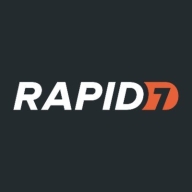

Invicti and Rapid7 InsightAppSec are both competitive application security solutions focusing on identifying and remediating vulnerabilities. Rapid7 InsightAppSec may have an edge due to its advanced integration capabilities and analytics, appealing to organizations that prioritize these features.
Features: Invicti combines deep scanning capabilities with automation, helping to streamline vulnerability management. It excels in accuracy, automation, and provides proof-based scanning to reduce false positives. Rapid7 InsightAppSec integrates seamlessly with various DevOps tools and is noted for providing detailed security insights thanks to its advanced analytics.
Room for Improvement: Invicti could work on simplifying its manual configuration process to enhance user experience. Speed optimization for full scans would be beneficial, as some users experience delays. Better integration with certain tools could also broaden its appeal. Rapid7 InsightAppSec might refine its user interface to enhance usability. Addressing occasional issues with report export functionalities could improve efficiency. Additionally, reducing initial costs would make it more accessible to a broader range of organizations.
Ease of Deployment and Customer Service: Rapid7 InsightAppSec offers a cloud-based deployment model with excellent customer support, including comprehensive documentation. Users appreciate the streamlined deployment, particularly when needing fast implementation. Invicti provides flexibility with both cloud and on-premises solutions, supported by dedicated customer service, though there might be a learning curve due to manual configurations.
Pricing and ROI: Invicti is often seen as cost-efficient, offering a strong long-term ROI with automated vulnerability resolution, albeit with a one-time setup fee. Rapid7 InsightAppSec requires a higher initial investment because of its extensive features. Despite the cost, the potential return on investment can be significant for organizations that need continuous, detailed security analysis.
| Product | Market Share (%) |
|---|---|
| Invicti | 7.8% |
| Rapid7 InsightAppSec | 6.2% |
| Other | 86.0% |


| Company Size | Count |
|---|---|
| Small Business | 14 |
| Midsize Enterprise | 4 |
| Large Enterprise | 13 |
| Company Size | Count |
|---|---|
| Small Business | 12 |
| Midsize Enterprise | 2 |
| Large Enterprise | 5 |
Invicti helps DevSecOps teams automate security tasks and save hundreds of hours each month by identifying web vulnerabilities that matter. Combining dynamic with interactive testing (DAST + IAST) and software composition analysis (SCA), Invicti scans every corner of an app to find what other tools miss with 99.98% accuracy, delivering on the promise of Zero Noise AppSec. Invicti helps discover all web assets — even ones that are lost, forgotten, or created by rogue departments. With an array of out-of-the-box integrations, DevSecOps teams can get ahead of their workloads to hit critical deadlines, improve processes, and communicate more effectively while reducing risk and hitting the ROI goals.
Your web applications may be complex, but your application security testing tool doesn’t need to be. InsightAppSec brings Rapid7’s proven Dynamic Application Security Testing (DAST) technology to the Insight platform, combining powerful application crawling and attack capabilities, flexibility in scan scope and scheduling, and accuracy in results with a modern UI, intuitive workflows, and sensible data organization. This enables you to identify XSS, SQL injection, CSRF, and other vulnerabilities with unparalleled ease. The best part? All of these capabilities are delivered via the cloud so that you’re up and running in minutes to identify the critical security risks that exist in your applications.
We monitor all Dynamic Application Security Testing (DAST) reviews to prevent fraudulent reviews and keep review quality high. We do not post reviews by company employees or direct competitors. We validate each review for authenticity via cross-reference with LinkedIn, and personal follow-up with the reviewer when necessary.